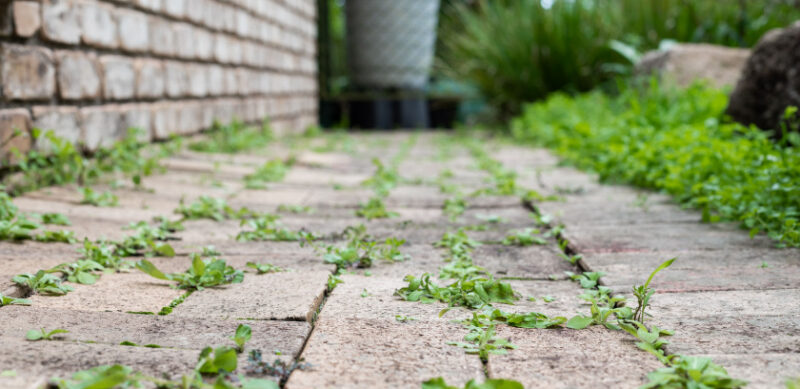Don’t Let Weeds Takeover Your Yard this Spring

There are a number of challenges that come with maintaining a lush, weed-free yard, especially during the spring. Spring, with its warmer temperatures and increased rainfall, creates the perfect conditions for weeds to thrive and potentially take over your garden. However, with the right strategies, you can prevent these unwelcome guests from dominating your outdoor space. Let’s explore various effective methods to keep your yard weed-free this spring.
Understanding Weeds and Their Growth Cycle
The first step in effective weed control is understanding weeds and their growth patterns. Weeds are opportunistic plants that can grow under various conditions. They compete with your garden plants for nutrients, water, and sunlight. Most weeds are characterized by rapid growth and reproduction, which is why they can quickly overrun a garden.
Regular Inspection and Early Detection
Regularly inspecting your garden is crucial for early weed detection. The sooner you identify weeds, the easier it is to remove them. This prevents them from establishing deep roots and spreading throughout your garden. Early spring is an ideal time to start your inspections, as the soil begins to warm up and dormant seeds start to germinate.
Mulching: A Natural Barrier
Mulching is a highly effective, natural way to suppress weeds. By applying a layer of mulch around your plants, you create a barrier that limits sunlight from reaching the soil, thereby inhibiting weed germination. Mulch also helps retain soil moisture, which is beneficial for your plants. Organic mulches, such as wood chips, straw, or bark, can also enrich the soil as they decompose.
Proper Watering Techniques
Efficient watering techniques can significantly reduce weed growth. By watering your plants directly at their roots, you minimize the amount of water available to weeds. Drip irrigation or soaker hoses are excellent for this purpose. They target the water directly at your plants, encouraging deeper root growth and reducing the surface moisture that weeds need.
Hand Weeding and Cultivation
For small to medium-sized gardens, hand weeding is a practical approach. When you pull out weeds by hand, ensure you remove the entire root to prevent regrowth. Regular cultivation of the soil can also help disrupt the growth of young weeds. However, be cautious not to dig too deep, as this can bring dormant weed seeds to the surface.
Use of Herbicides
In some cases, the use of herbicides might be necessary. When choosing an herbicide, select one that is suitable for your specific garden needs and the type of weeds you are dealing with. Always follow the manufacturer's instructions to avoid harming your desirable plants. Herbicides can be selective (targeting specific types of weeds) or non-selective (killing all plants they contact).
Preventative Measures
Preventing weeds from germinating is more effective than dealing with them once they have grown. Aside from mulching, consider using landscape fabrics in areas of your garden where you don’t want anything to grow. These fabrics allow water and air to penetrate but block sunlight, preventing weed germination.
Maintaining Lawn Health
A healthy lawn is your best defense against weeds. Regular mowing, proper fertilization, and aerating your lawn will encourage dense grass growth, leaving little room for weeds to establish. Also, setting your mower to a higher setting allows grass blades to grow longer, shading the soil and preventing weed seeds from germinating.
Garden Design Considerations
Designing your garden to suppress weeds can also be an effective strategy. Dense plantings and ground covers can minimize the amount of exposed soil, reducing the likelihood of weed growth. Choose plants that naturally suppress weeds through their growth habits or allelopathic properties (a biological phenomenon where a plant releases chemicals that inhibit the growth of other plants).
Controlling weeds in your yard requires a combination of regular maintenance, proactive measures, effective gardening techniques, and professional help. By understanding the nature of weeds, employing physical barriers like mulching, using efficient watering methods, and considering the use of herbicides when necessary, you can maintain a vibrant, weed-free yard this spring. Remember, the key to successful weed control is consistency and timely action. Take proactive steps to protect your yard from weeds this spring. If you need help, reach out to the pros at The Experienced Gardener today.


